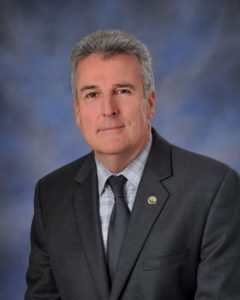
It can be argued that few careers offer the range of opportunities and can directly touch as many lives as those within local government. Local government leaders make decisions each day across a range of diverse issues that have both immediate and long-term impacts for individuals, communities and even regions. With the impending retirement of many local government leaders looming on the horizon, this should be a very exciting time for today’s youth and young professionals looking for a career with growth, great benefits, and opportunities to make a real difference.
But let’s face it – when it comes to the hopes and dreams of today’s youth, a career in local government is not likely at the top of the list. Even more concerning: it’s unlikely to even be on the radar.
How is this possible? And how do we get in front of what could be a critical lack of leadership within local government as baby boomers begin leaving their posts?
Attracting youth, young professionals, and a skilled workforce has been top of mind for local government economic development departments for quite some time. The focus has been on creating communities where the next generation wants to live, where good businesses want to put down roots, and on becoming destinations for those in the surrounding areas to find desirable entertainment or recreation options.
But the task of attracting young professionals to a community is a bit different than attracting them to a career within that community. So what are some of the strategies current local government leaders may use to attract and engage the next generation of leaders? While each community will find success with different strategies the following are a few that we have found to be helpful starting points:

City Manager Bobby Green, Auburndale, Florida.
- Recruit and nurture from within. Bobby Green, City Manager from Auburndale, Florida has gained a national reputation as a local government mentor and thought leader in this area. Life, Well Run recently caught up with him to discuss strategies that he has found effective. Mr. Green strongly encourages local government to find ways to plant the seeds of local government careers within all youth engagement. In Auburndale he provided the example of gathering all city summer interns and employees – including lifeguards, camp counselors, library aides, etc. – to explain the benefits of a career in local government. “For many, their summer job is their first job, and it is already in local government,” explains Mr. Green. “These mostly high school and early college age students are energetic and excited to have the opportunity of summer employment, but always look so surprised when I ask if they would like a job in the fire service, IT department, or maybe just flying the city’s drone with our Communications Manager,” says Mr. Green of these discussions. It may seem a simple approach, but perhaps that also means that almost any city can do it. And as Mr. Green points out, “this entry-level introduction has already paid off as several current full-time employees started with us in summer employment.”
Learn more about strategies to attract and retain the Next Generation of local government leaders in episode 6 of ICMA’s Local Gov Life podcast.
- Enlist the assistance of local educators. Even though career opportunities are on the rise, one of the biggest hurdles in finding skilled professionals to step into local government might be as simple as the fact that fewer young people are being exposed to this as a career choice! In a recent blog post Miranda Lutzow discusses the unique opportunity high school educators have in introducing youth to local government. Whether through inviting guest speakers from local government into the classroom, or partnerships where students collect or analyze data for city projects, there are countless ways for high school educators and local leaders to reach and inspire this critical audience. Some high schools have even established partnerships with their local governments to provide students with hands on skills and a unique view of how communities are run. Similarly, some local governments have recognized the value of engaging high school students through various summer study and internship programs such as the City of Sacramento’s Summer in the City Program and the City of Mesquite, Texas Police Department’s summer camp.
Check out this great video about Summer In the City in Sacramento: https://youtu.be/iIBpIO2RIAM
And then – check out these resources for students and teachers to learn more about local government: http://lifewellrun.org/life-well-run-resources/resources-for-students-and-teachers/
- Create a youth advisory council. Youth engagement of course should not be limited to summertime. Cities across the country are creating various forms of youth councils and leadership programs where participants learn about various community initiatives, serve as ambassadors and are given the opportunity to present recommendations to city leaders. The City of Tigard, Oregon is a great example of an active youth program, and the Florida League of Cities has even created a guide on the development of these groups. The Town of Erwin, Tennessee has even taken this concept a step further. In a recent article by Governing the mayor explains how, faced with the loss of two major employers in this small town, she turned to millennials to help guide the future of their town. The active inclusion of this group has been transformative for the town which is being re-envisioned as a destination spot, has begun to update zoning ordinances to allow for more mixed-use development, and has seen new shops and restaurants emerge as a result.
- Start or engage with an ICMA Student Chapter. While it is critical to engage the K-12 audience, youth engagement should not exclude those young adults who have already made the first step towards declaring interest in public service, public administration, political science, or a host of policy and governance degree programs. ICMA has student chapters at nearly 80 colleges and universities across the country. Check out the list of current chapters, if there is a group near you please consider reaching out to offer your services as a speaker or mentor, see if there are special events that you can participate in or other ways to partner. If there isn’t a chapter already established consider meeting with your local college or university about starting one.
Does your city or county have a successful youth engagement strategy? We’d love to hear about it and learn more about your experiences attracting youth to local government. Email us at lifewellrun@icma.org and follow us on Twitter and Facebook!
New, Reduced Membership Dues
A new, reduced dues rate is available for CAOs/ACAOs, along with additional discounts for those in smaller communities, has been implemented. Learn more and be sure to join or renew today!
